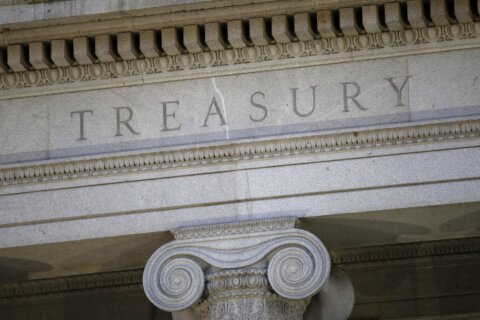Depositing or cashing a check as soon as you can is the right (and polite) thing to do. That’s because an uncashed check can create uncertainty or worry for whomever gave it to you. Depositing or cashing it lets that person know you received the check — and the funds.
Despite your best intentions, you may have a check you forgot about or misplaced and then discovered months later. Can you still deposit or cash it?
Maybe.
Most old checks aren’t valid forever. Whether you can deposit or cash yours depends on the kind of check it is and, in some cases, the state where you live.
Here’s a look at the guidelines for various kinds of old checks:
[Read: Best Checking Accounts.]
Personal Checks
A personal check is generally good for at least six months. After that, you may or may not still be able to deposit or cash it.
The six-month timeframe comes from the Uniform Commercial Code (UCC), a set of standardized laws that states can adopt. The idea is to make state laws uniform, but not all states have adopted the entire UCC in the same way. That creates some variability in the rules.
The UCC says that after six months, banks don’t have to accept a personal check. It’s generally up to the bank to decide, says Marianne Martini Nolte, CEO of Imagine Financial Services, a financial planning firm in Arizona.
“If you come across a check you forgot to deposit, look at the check issue date to determine if it may still be valid,” Nolte says.
If your own bank didn’t issue the check, the bank that did issue it may be more willing than your own bank to let you deposit or cash it.
Cashier’s Check
The rules to deposit or cash a cashier’s check vary from bank to bank with no guidance from the UCC. Some banks print a deadline on their cashier’s checks, says Nate Nieri, president of San Diego-based financial planning firm Modern Money Management.
“The financial institution might put ‘expires in X days,'” Nieri says. “Try to be mindful of that (date), but you can always contact the institution and see what they say.”
Old cashier’s checks may eventually be turned over to the state government as unclaimed property. Rules and timelines vary by state. Many states have an online portal where you can search for unclaimed property, such as an old cashier’s check, that’s legally yours.
[Read: Best Savings Accounts.]
Treasury Check
Treasury checks can be deposited or cashed for up to one year after the date on the check.
If you have an older Treasury check, “it’s not a use-it-or-lose-it situation,” Nieri says. “You can always request a new one.”
Certified Check
Like cashier’s checks, certified checks generally don’t expire but can be subject to state unclaimed property laws.
State or Local Government Check
The rules for state and local government checks depend on where the check was issued. If you find an old check of this type, contact the agency that issued it. If it’s no longer good, ask for a new one.
[Read: Best CD Rates.]
Traveler’s Check
Traveler’s checks are valid as long as the bank that issued them still exists. If you find some old traveler’s checks, you usually can cash them or use them wherever you shop at home as you would on the road.
Business Check
Business checks are generally subject to the same UCC rules as personal checks.
Some businesses print “void after X days” on their checks to encourage prompt deposits. If the bank won’t allow you to deposit or cash a business check, the business may refuse to issue a replacement.
What Happens if You Wait Too Long to Deposit a Check?
If you don’t deposit a check right away, you may not receive the funds even if your bank agrees to accept the check.
That’s because the account the check was drawn on may have been closed or not have sufficient funds to back the check. In either of those cases, the check will be returned to your bank, which may charge you a returned check fee.
In the case of insufficient funds, the person who wrote the check may also be charged a bank fee.
You Can Deposit Checks Right Away
If you can’t get to your bank’s physical location, you can usually deposit a check right from your smartphone. All you need to do is download the app, sign into it, set up your deposit and take pictures of the front and back of your check. Be sure to endorse the back before you take the photo. You can also make deposits via the mail or an ATM.
Given the risks of waiting, it’s best to try to deposit or cash a check as soon as you receive it.
More from U.S. News
How Banks Are Working to Protect You From Fraud
How Long Is a Check Good for? originally appeared on usnews.com
Update 02/22/24: This story was previously published at an earlier date and has been updated with new information.







